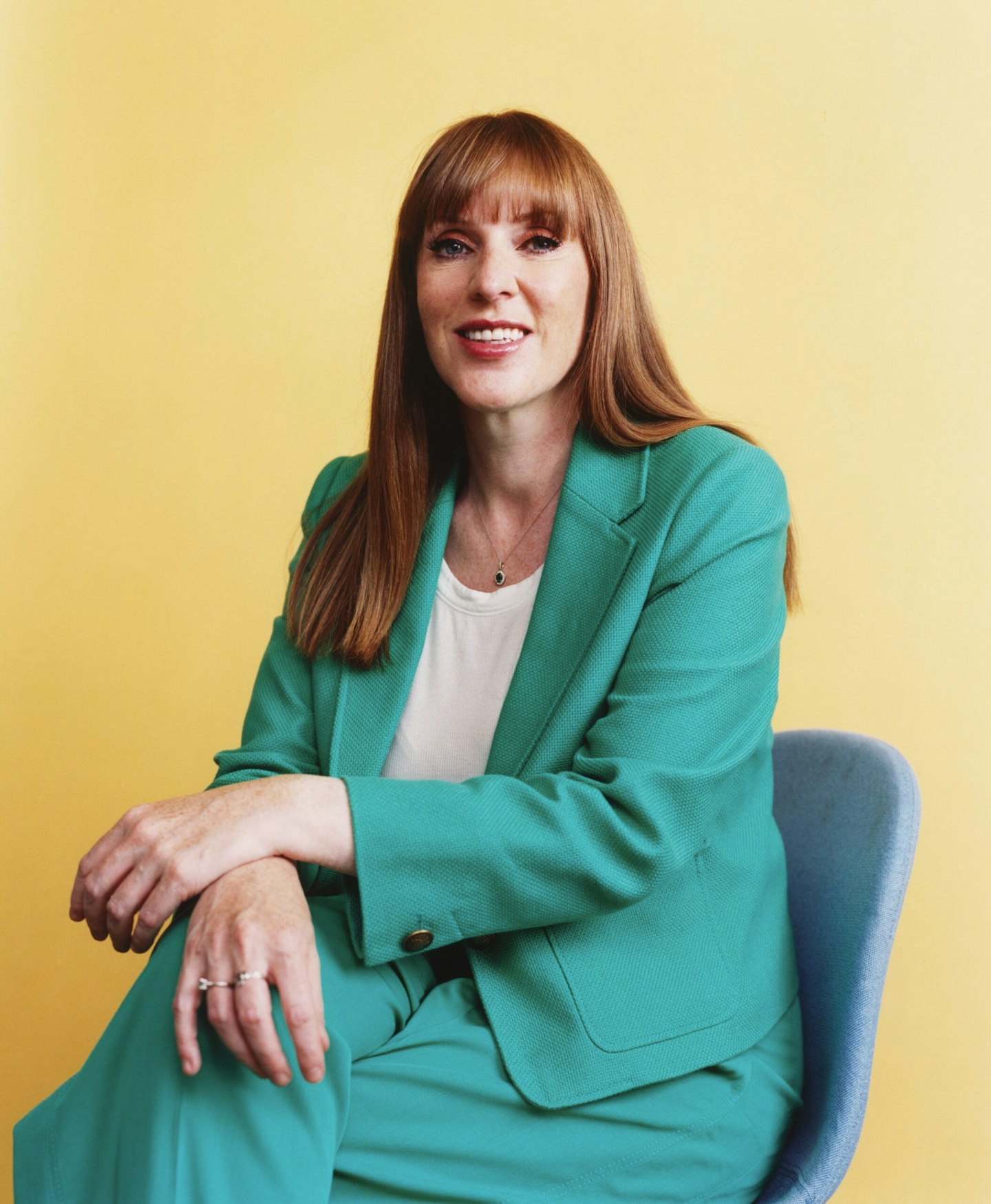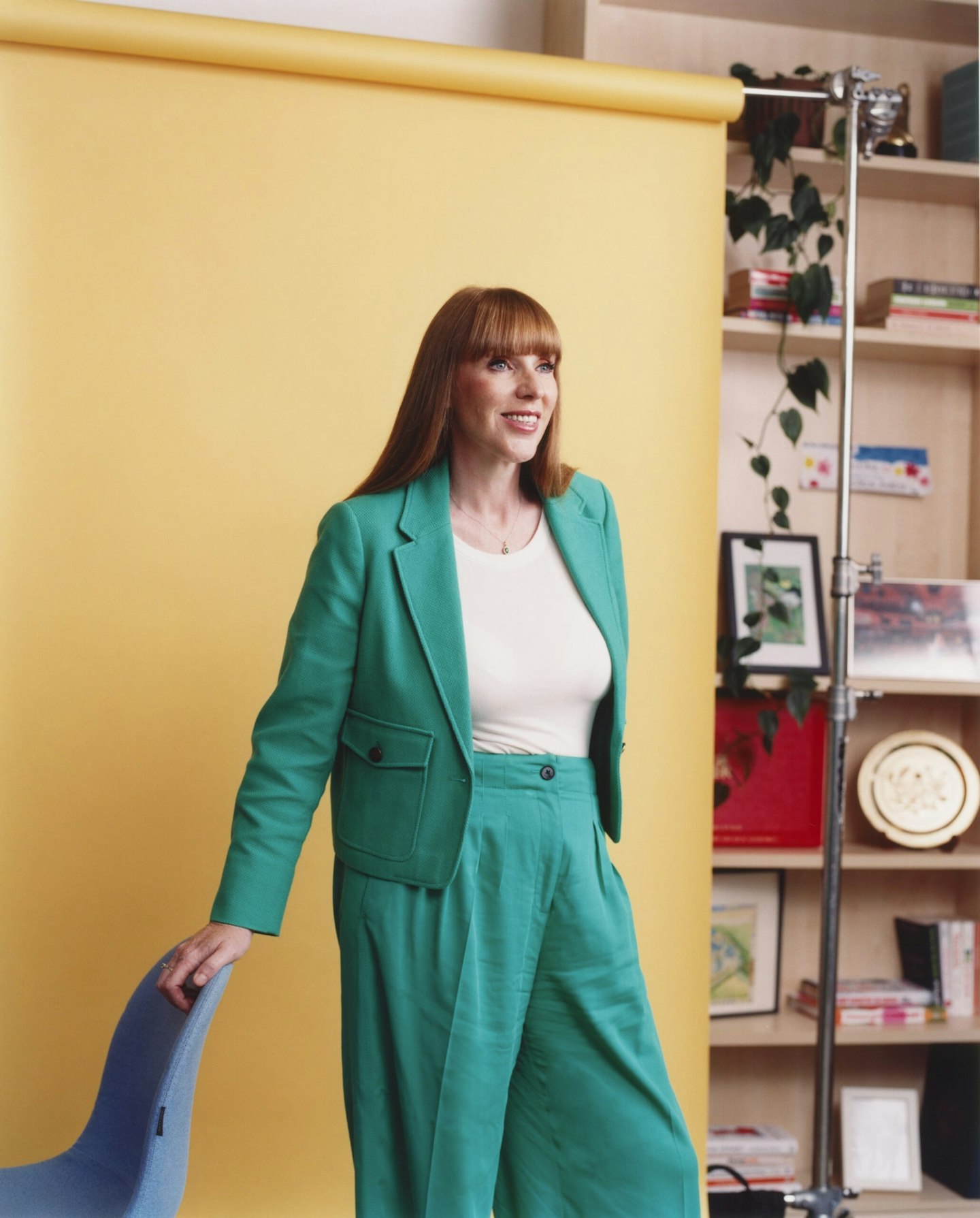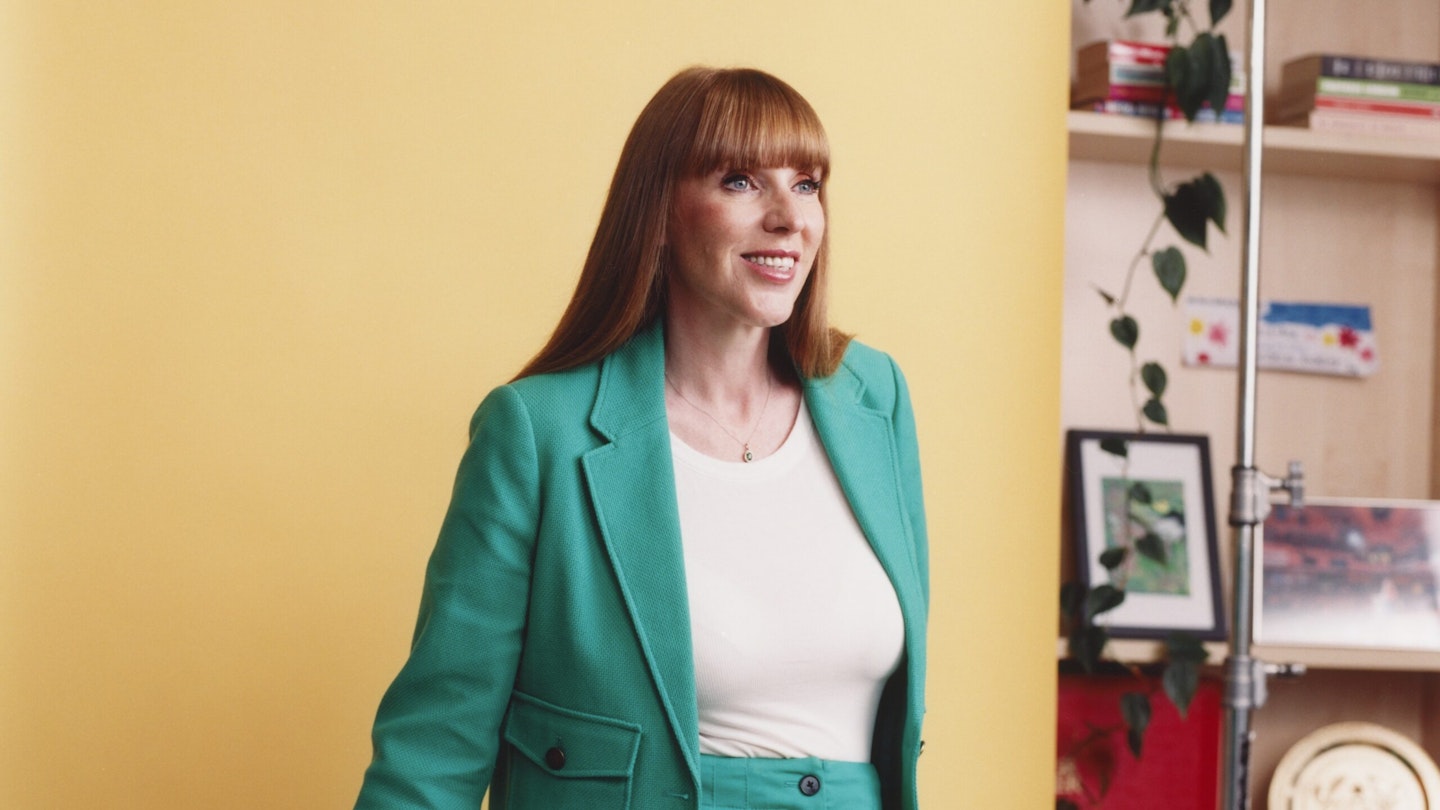This time last year, Angela Rayner became the most powerful woman in British politics when she was appointed Deputy Prime Minister. On the campaign trail last summer, she promised to grow the economy to get public services back on track, to strengthen workers’ rights and build 1.5 million new homes within five years. So, how has she found the last 12 months attempting to do just that? ‘Busy!’ she laughs. We’re sitting in her office in Westminster, her two youngest sons, Jimmy, 16, and Charlie, 17, busying themselves on their phones while we chat.
‘The challenge for us in the first year was that every single thing was a priority and each one overlaps,’ says Rayner, 45. ‘I’m most proud of the employment rights bill in the first 100 days, which no one thought we’d be able to do. And we’re really turning the tide on the 1.5 million homes now; it’s like turning an oil tanker getting the housing market to change.’
Political theory dictates that meaningful change comes from long-term goals, which many would argue is at odds with our current system, where politicians must prove themselves worthy in four short years in order to be re-elected. Is it to your detriment, then, to care more about improving British lives than your own career, I wonder?
‘That’s right,’ says Rayner. ‘A classic example was the previous Labour Government’s Sure Start [children’s centres providing support to local families]. It took two decades before you saw the impact for young mums like me who benefited from it.’ Angela had her first son, Ryan, when she was 16, and has credited her local Sure Start in Manchester with teaching her how to be a good parent.

‘The Prime Minister [Keir Starmer] was clear coming into Government: we’re not going to do slogans on a bus, we’re doing the hard yards. That’s why this year has been difficult, every part of the system is creaking.’
Global politics is also increasingly unpredictable, with leaders such as Donald Trump and Vladimir Putin at the helm of the world’s most powerful countries – as evidenced by Trump’s shock bombing of Iran’s nuclear sites after telling Keir Starmer the US wouldn’t get involved. What has Rayner learned about diplomacy from dealing with men like Trump?
‘I already knew a lot about diplomacy having grown up as a teenage mum,’ she laughs. ‘Growing up on an estate, I knew when to be quiet, when to speak and how to bring people round. Anyone who grew up from the same background as I have, you’ve got higher diplomatic skills than someone highly privileged, because you’ve never had the power in your hands; you’ve always had to negotiate and struggle.’
This month, Labour will announce its landmark strategy on dealing with violence against women and girls. What will the focus be? ‘There’s a lot,’ Rayner says. ‘We’ve put £160 million into it: having more neighbourhood police; more training in domestic violence; making our town centres more family friendly; transport more accessible so women can safely move around. Also, in an era where social media can be toxic, the Andrew Tate elements, we need to improve education around respect for each other.’

Alongside her two sons with husband Mark Rayner, a Unison official, Rayner has a 28-year-old son who has a daughter. Does she feel the pressure of raising good men when there are seemingly so many bad actors online? ‘I worry about their generation,’ she says. ‘My children are never off their phones. I think it’s important to build resilience, protect them, and challenge fake news as we move towards AI. It’s a real concern of mine that people are getting information online that’s manufactured.’
The ‘manosphere’ doesn’t stop with Tate. New research has identified a digital pipeline running from misogynistic videos to alt-right content, with fears that far-right ideologies are spreading in Britain as we’ve seen in recent years in the US, Italy and Germany. Is Rayner concerned about that? ‘Yes, and I’m scared of extremism full stop,’ she says. ‘Because in this country we’re not extreme, we have lots of different views and we all rub along quite nicely. If someone falls in the street, everyone will go over and look after them, we wouldn’t troll or blame them, but online it’s a very different culture.’
Rayner has dealt with sexist and classist trolling herself, both online and in the tabloids. ‘It’s my turn now to push the frontiers as much as I can,’ she says. ‘Both by being proud of where I’m from and making sure I’m not pulling up the ladder behind me. There are a lot of working-class women that are [in positions of power] but they don’t say it; they’ll change their accent or hide their background.’
Part of this includes mentoring young girls. ‘I tell them, when you’re in your amazing job, do the same for somebody else from your background,’ Rayner explains. ‘They have a boys’ network, I’m trying to build the girls’ network, a positive reinforcement of being yourself. Come through the ranks and, when you’re the big boss, remember that girl is not going to come knocking, you need to find them. It would be easy for me to pluck a top graduate for my team, but instead I go searching for incredible women.’
I was incredibly proud to be elected, I need to make sure it counts.
Given how important Rayner finds it to have better representation at the top, would she consider going for PM herself? ‘I never even expected to become Deputy Prime Minister,’ she says. ‘I was incredibly proud to be the first woman ever to be elected to my constituency [Ashton-under-Lyne, in Greater Manchester] and I need to make sure it counts. I’ve taken on other roles and now I need to step up again and prove I’m doing something and giving it back. Maybe that’s my working-class roots – that I’m never satisfied. I have to keep trying to tick that box and say, “I’ve done that.”’
Rayner famously once referred to her relationship with Keir Starmer as an ‘awkward arranged marriage’. How would she describe it today? ‘It’s definitely evolved,’ she laughs. ‘We both have a real sense of who the other person is, our values and what motivates us. That helps when it comes to dealing with challenges. Keir will come from an analytic mind and I’ll come from an emotional pull to it, but we both come to the same conclusion, so we complement each other well.’
And what of the Labour Party as a whole? With endless headlines about in-fighting, polls suggest 60% of the British public believe the party is more divided than ever.

‘I always chuckle at those [headlines],’ Rayner says. ‘We do have differences of opinion, but I can genuinely say that none of us have fallen out. It’s great clickbait for people who want to create division.
Instead, Rayner is focused on delivering the promises she made 12 months ago. ‘I’m hoping people start to see things happening and we’ll all get out of this 10-year doom loop of decline. I want us to feel optimistic about our future.’
Before that, though, there’s a parliamentary summer recess. The last one saw Rayner partying it up in Ibiza. ‘I’m hoping this summer will be quieter,’ she says with a laugh. ‘I’ll spend some time with my children.’ Her personal life has, understandably, changed dramatically in the last year.
‘It is a challenge. I don’t go down to my local boozer now, so when I get home my friends and neighbours come round to see me,’ she says. ‘And my boys come here [to the office] as they are now. I’m lucky they’re older; they have grown up knowing that Mum does this work and they understand it, as do my friends. You only get one chance to achieve real change and those around me see where my heart is. I wouldn’t be here if it weren’t for previous Governments who made decisions that gave me these opportunities. I’ve seen the power of what politics can do to change people’s lives and now I’ve got that opportunity, I’m not going to waste it.’
Georgia Aspinall is an award-winning journalist and acting assistant editor at Grazia UK, previously senior editor. As well as co-ordinating news and features for both digital and print, she is responsible for Grazia's campaigning efforts. Georgia has a vast knowledge of digital journalism and SEO best practice, covering women's interest stories across politics, health, dating, travel and pop culture.
Photographs by Serena Brown
